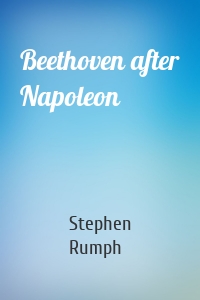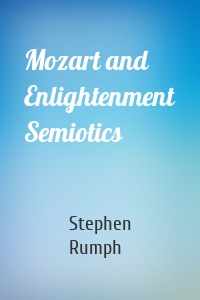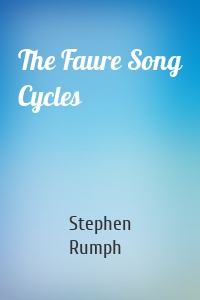Stephen Rumph
3 кн.
Mozart and Enlightenment Semiotics
In this groundbreaking, historically-informed semiotic study of late eighteenth-century music, Stephen Rumph focuses on Mozart to explore musical meaning within the context of Enlightenment sign and language theory. Illuminating his discussion with French, British, German, and Italian writings on signs and language, Rumph analyzes movements from Mozart’s symphonies, concertos, operas, and church music. He argues that Mozartian semiosis is best understood within the empiricist tradition of...
| Автор | Stephen Rumph |
The Faure Song Cycles
Gabriel Fauré’s mélodies offer an inexhaustible variety of style and expression that have made them the foundation of the French art song repertoire. During the second half of his long career, Fauré composed all but a handful of his songs within six carefully integrated cycles. Fauré moved systematically through his poetic contemporaries, exhausting Baudelaire’s Les fleurs du mal before immersing himself in the Parnassian...
| Автор | Stephen Rumph |




